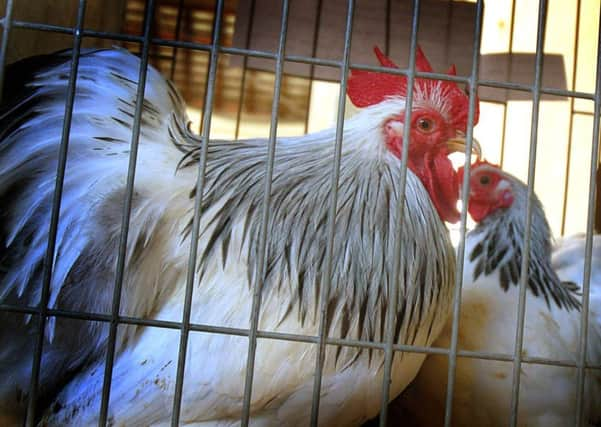Melton poultry owners ordered to take protection measures after new bird flu scare


In December 2016, the Department for Environment Food and Rural Affairs (Defra) ordered UK flocks to be housed and banned all bird sales, including those at Melton Cattle Market, because of the risk of the virus being circulated.
Protection measures were gradually eased but were not finally lifted until April, when the threat was averted from wild birds migrating away from the UK.
Advertisement
Hide AdAdvertisement
Hide AdBut Chief Veterinary Officer Nigel Gibbens today (Thursday) declared a new bird flu prevention zone across the whole of England, after 13 dead wild birds were confirmed to have the virus in Warwickshire.
Last week, 17 wild birds tested positive in Dorset and a total of 31 infected birds have now been identified at that site.
Because the disease does not appear to be isolated to a single site, the decision has been taken to bring in a prevention zone across the country on a precautionary basis.
Public Health England say the risk to public health remains very low and the Food Standards Agency have said that bird flu does not pose a food safety risk for UK consumers.
Advertisement
Hide AdAdvertisement
Hide AdMr Gibbens said: “Following the latest finding of bird flu in wild birds in Warwickshire, we are extending our action to help prevent the virus spreading to poultry and other domestic birds.
“Whether you keep just a few birds or thousands, you are now legally required to meet enhanced biosecurity requirements and this is in your interests to do, to protect your birds from this highly infectious virus.”
The prevention zone means bird keepers in the Melton area must:
-Ensure the areas where birds are kept are unattractive to wild birds, for example by netting ponds, and by removing wild bird food sources;
Advertisement
Hide AdAdvertisement
Hide Ad-Feed and water your birds in enclosed areas to discourage wild birds;
-Minimise movement in and out of bird enclosures;
-Clean and disinfect footwear and keep areas where birds live clean and tidy;
-Reduce any existing contamination by cleansing and disinfecting concrete areas, and fencing off wet or boggy areas.
Keepers with more than 500 birds will also be required to take some extra biosecurity measures, including restricting access to non-essential people, changing clothing and footwear before entering bird enclosures and cleaning and disinfecting vehicles.
Advertisement
Hide AdAdvertisement
Hide AdThe prevention zone will be in place until further notice, say Defra, and will be kept under regular review as part of their work to monitor the threat of bird flu.
Poultry keepers and members of the public are asked to report dead wild birds to the Defra helpline on 03459 335577 and keepers should report suspicion of the disease on 03000 200301.